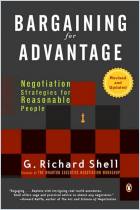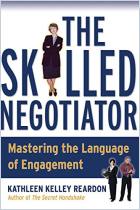Join getAbstract to access the summary!

Join getAbstract to access the summary!
Alexandra Carter
Ask for More
10 Questions to Negotiate Anything
Simon & Schuster, 2020
What's inside?
To reframe the way you negotiate and achieve greater results, ask better questions and listen more closely.
Recommendation
Of the many people – including diplomats, lawyers and executives – who attend negotiation expert Alexandra Carter’s conflict resolution courses, 10-year-old girls are, generally, her best listeners. Learn to listen as they do to revolutionize how you negotiate. Carter, a Columbia Law School professor, walks you through the art of listening reflectively and asking open questions. The more information you uncover about yourself and the other party, the richer and more robust your negotiations will become. Carter’s expertise as a mediator shines in this must-read for any negotiator.
Summary
About the Author
Columbia Law School professor and Mediation Clinic director Alexandra Carter runs negotiation trainings for the United Nations, Fortune 500 companies, government agencies and non-profits.

















Comment on this summary